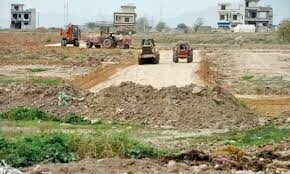ISLAMABAD, Feb 13: Kidney patients get the dialysis treatment for free at the hospitals run by the Punjab government but it is a hassle if they go to the federal government hospitals in the city seeking the same.
Pakistan Institute of Medical Sciences (Pims) and Federal Government Services Hospital (Polyclinic) offer the costly treatment but make the patients who cannot afford it to knock at the doors of donors to foot the bill.What to say of the poor, even middle-income families cannot afford the treatment.
Pims executive director Prof Mehmood Jamal however claimed that “almost 95 per cent of the patients coming to our hospital for dialysis are charged no money for the treatment”.
It turned out that those 95 per cent have to run to Baitul Maal to pay the bill fully or partially for them.
Neither would it be easy for the rest five per cent to arrange Rs4,000 for each dialysis session. In many cases a patient needs two sessions every week.
A look into the Pims records showed that the five per cent came from middle and lower-middle classes.
Prof Khwaja Sayeed Ahmed, head of the nephrology and dialysis department at the private Shifa International Hospital, says he was among the people who drafted the free-of-cost policy for the poor patients during the tenure of former Prime Minister Nawaz Sharif. “That policy is still being followed in Punjab,” he told Dawn .
“The federal government should consider adopting it, or at least provide free the nearly Rs2,000 kit needed for one dialysis procedure.”
Patients suffering from kidney failure usually need minimum two dialysis sessions every week, the nephrologist said.
Depression, uncontrolled or high sugar level in the blood and high dosages of antibiotics can affect efficient working of one's kidneys, leading ultimately to renal failure where dialysis becomes the only treatment.
According to Prof Sayeed the Shifa International Hospital - otherwise considered an expensive facility - provides free dialysis treatment “to a few patients who are extremely poor”. Cost of a routine, twice a week dialysis ranges between Rs3,500 and Rs4,500.
Kidney patient Mansoor Ali, 23, stood outside the nephrology department of Pims lamenting that his father, a government servant earning about Rs12,000 per month cannot pay for the costly treatment.
“I am not eligible for Zakat, nor for free treatment as the son of a government servant. My twice-weekly dialysis is a nightmare for the family,” he told Dawn.
At the Polyclinic the situation was no different.
Dr Sharif Astori there said that on the average the hospital provided free dialysis treatment to four patients “in emergency cases” every day. Others have to buy the kits.
Dr Sharif agreed that poor patients who don't have money suffer. “I know a few government officials whose children with renal failure are being treated in the Polyclinic for free but the cost of dialysis depresses them,” he said.
When approached, the federal director-general health, Dr Asad Hafeez, assured to look for remedies.
“I am aware that dialysis is free in provincial government. We will see if the federal government hospitals could do same. We will try to ensure at least free provision of the dialysis kits,” he said.















































Dear visitor, the comments section is undergoing an overhaul and will return soon.